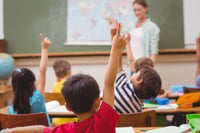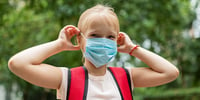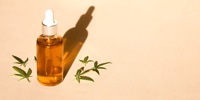MORE TIPS
GoStudent and Seneca Study Highlights
- January 27, 2023
- In MORE TIPS
- 5 min read
Students who took part in the GoStudent and Seneca learning progress pilot increased performance by 23%, thanks to personalised online tutoring and an interactive learning environment.
Teaching Your Children How to Invest Their Money
- December 1, 2022
- In MORE TIPS
- 11 min read
Investing, if done well, can generate greater returns than money sitting in a bank account. Check out our top investing tips for kids right here.
School catchment areas: Can you apply for schools outside of your catchment area?
- November 23, 2022
- In MORE TIPS
- 4 min read
Find out what you need to know about school catchment areas and out of catchment area school applications for primary and secondary school.
Our Top 5 Homework Tips for Parents
- November 23, 2022
- In MORE TIPS
- 6 min read
There are several steps you can take to help your kids have a more positive outlook on homework. From healthy snacks to study plans, this is how you can support your kids and help them get through their homework quicker and easier.
Northern Ireland School Holiday and Term Dates 2022/23
- November 21, 2022
- In MORE TIPS
- 6 min read
Are you planning for the school year ahead? Check out our guide to Northern Ireland term dates and school holidays to make sure you’re on top of the important dates.
School Catchment Areas: How Do They Work?
- August 25, 2022
- In MORE TIPS
- 11 min read
Getting to grips with school catchment areas for your child’s schooling can be confusing. Check out our guide to school catchment areas across the UK
Best Flexible Summer Jobs for students
- August 10, 2022
- In MORE TIPS
- 9 min read
Teenagers may want a flexible summer job to save money, keep themself busy, learn a new skill, or just for fun. Check out our list of the best summer jobs for teens.
COVID-19 at School: My Child Has Tested Positive! What Should I Do?
- June 5, 2022
- In MORE TIPS
- 10 min read
COVID-19 at school: what parents need to know. The latest information on restrictions in schools and how to care for your child if they test positive.
Activities for Gifted Children: Ideas and Tips
- May 31, 2022
- In MORE TIPS
- 6 min read
Having a gifted child is a walk in the park, isn’t it? Not necessarily! Read our ideas and tips for activities for highly capable children.
The Parent Teacher Association: What Does it Do and How Can I Help?
- May 25, 2022
- In MORE TIPS
- 10 min read
There’s more to the PTA than bake sales and raffle tickets. Here’s our guide to what a Parent Teacher Association does and how it benefits your child.
A Guide to the Solihull Approach + A List of Online Courses
- May 11, 2022
- In MORE TIPS
- 9 min read
You’re having challenging times with your child. You’ve tried everything! We get it. But the Solihull Approach may just be worth a try!
How to Be a Good Parent - a Compassionate Guide to Parenting
- May 4, 2022
- In MORE TIPS
- 10 min read
When it comes to parenting, no-one knows your kids better than you. We look at how to be a good parent with compassion, kindness and self-awareness.
10 Flexible Jobs That Work Around School Hours
- April 27, 2022
- In MORE TIPS
- 8 min read
GoStudent’s top tips on how to find jobs that work around school hours. Read on for advice on what to look for, a list of suitable job roles and much more.
The Terrific and the Terrible! - A Parents' Guide to Tweens
- April 19, 2022
- In MORE TIPS
- 10 min read
If your child is around the age of ten, congratulations! You’re now a member of the Tween Parenting Club. Here’s some info and advice you’ll need.
CBD: What Parents Need to Know. Is Cannabidiol Safe for Kids?
- April 19, 2022
- In MORE TIPS
- 9 min read
CBD: What parents need to know. An in-depth guide to the latest information on CBD, what it does, its medicinal use and whether or not it's safe for kids.



















